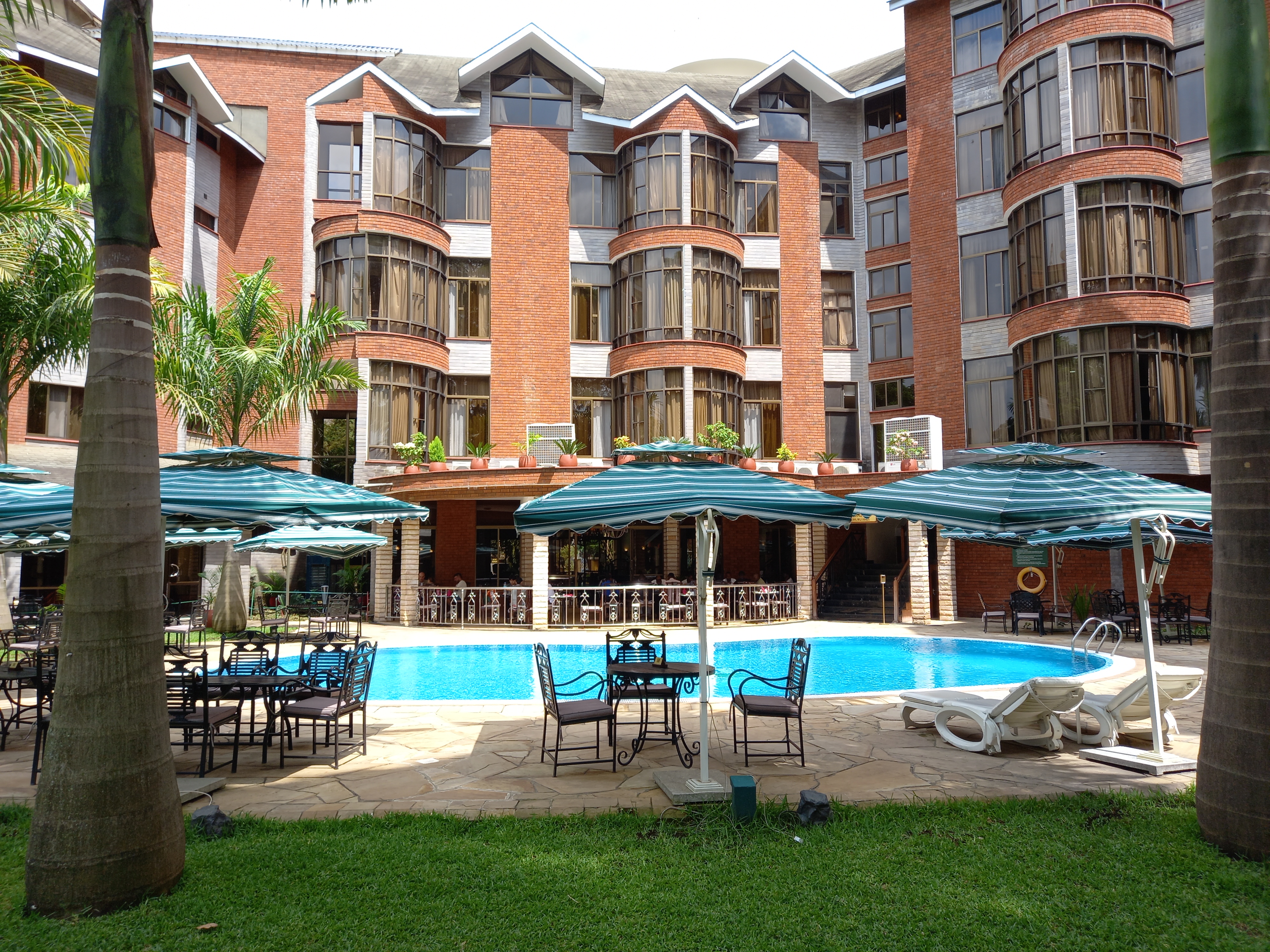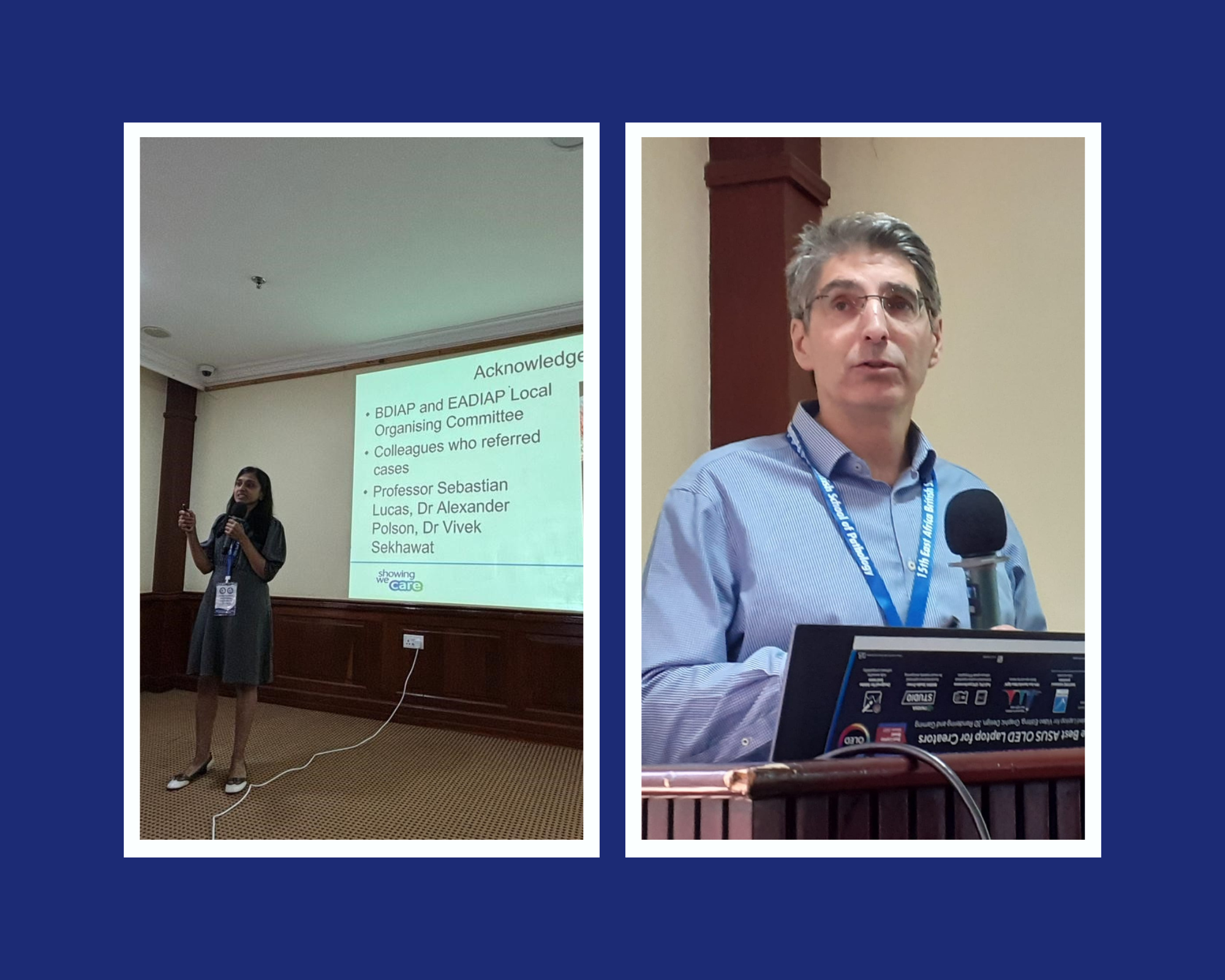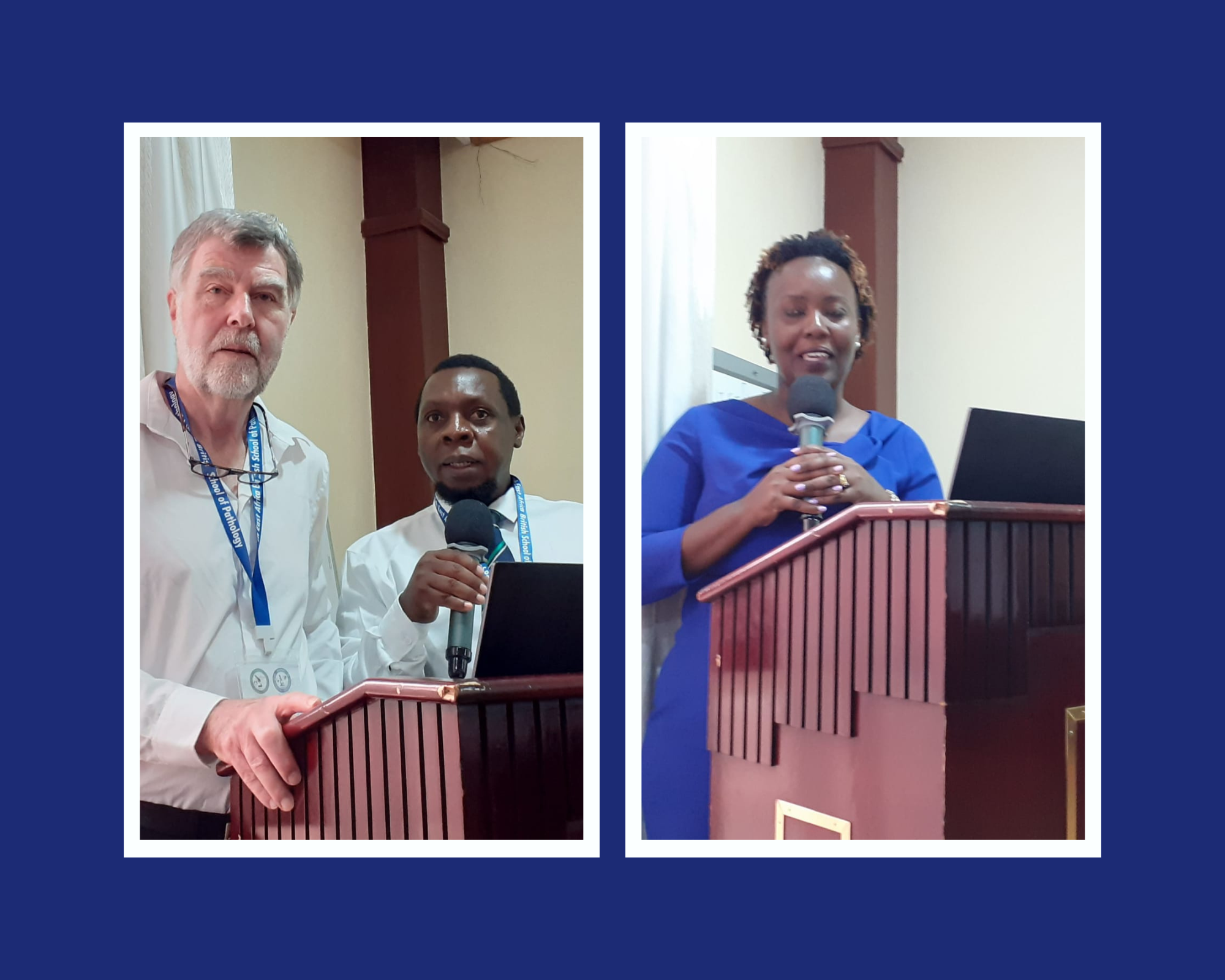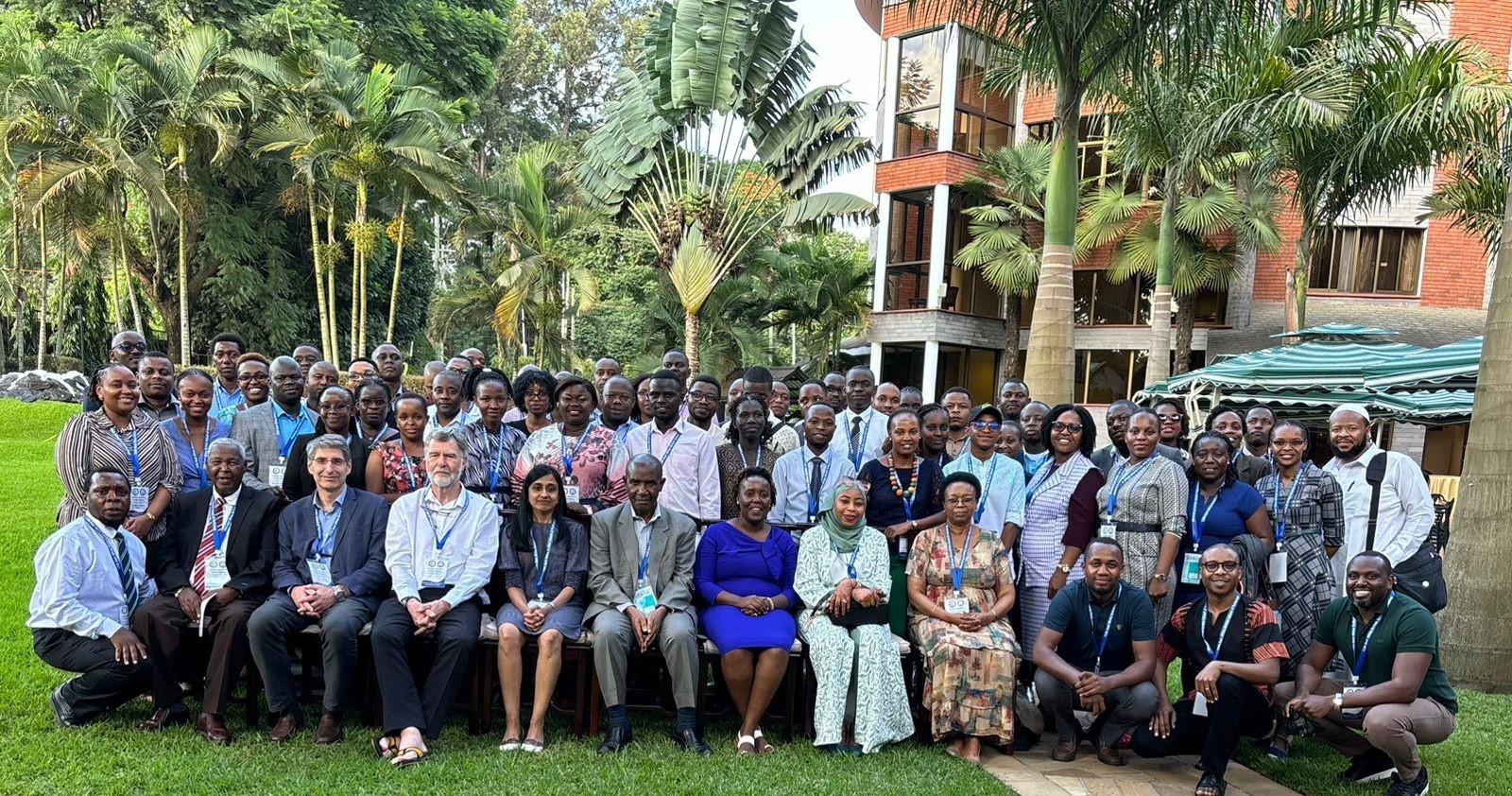The 15th East African British School of Pathology (EABSoP)
Report by Prof Sebastian Lucas
12 March 2024
(Last updated: 10 Sep 2024 12:02)
The 15th East African British School of Pathology (EABSoP) took place on 22nd and 23rd of February 2024.
In August 2023, the BDIAP received a request from the East African British School of Pathology to support their next proposed educational meeting, the topic being infectious disease pathology of the gut and liver. Prof Neil Shepherd approached Prof Sebastian Lucas to ask if he might lead a UK team of speakers who could present a two-day program in Arusha, near Mt Kilimanjaro in northern Tanzania.

Kibo Palace Hotel, Arusha
He agreed to do so, on the tentative condition that two specific speakers would join him: Dr Ula Mahadeva as the GIT and general infectious disease expert (at Guy’s & St Thomas’ Hospitals), and Prof Alberto Quaglia as expert liver pathologist (at Royal Free Hospital). They instantly agreed.

L to R: Dr Ula Mahadeva and Prof Alberto Quaglia
The draft programme was developed, liaising with the head of the local organising committee, Dr Angela Pallangyo who is based in nearby Moshi, and Dr Ahmed Kalebi, the current East African British School of Pathology President. An emphasis on parasitic diseases was welcomed, and all through, the differential diagnosis of infections vs neoplastic and other non-neoplastic diseases was a focus. Overall, the faculty got the impression that we were introducing quite a lot of significant diseases and classifications that had not hitherto been considered relevant.

Lto R: Prof Sebastian Lucas and Dr Robert Lukande (Uganda), President-elect of the East African British School of Pathology and Dr Angela Pallangyo
An open session discussing what diseases East African pathologists might be diagnosing in the year 2050, and how technically they would be doing so was introduced. This discussion of Pathology Futures showed up a wide divergence of opinion as to whether the new technologies in cellular pathology, particularly molecular typing and AI-supported diagnostics, are reasonable expectations for the region. Obviously the BDIAP links with the East African British School of Pathology can only improve the local situation through showing what can be achieved. Whilst the local lack of immunohistochemistry in the area of infection pathology was obvious, the speakers emphasized how careful examination of H&E and the usual simple special stains could expand their repertoire of diagnosable infections – for there seem to be many diseases that are (epidemiologically) surely present in East African peoples but probably not being recognized as such.
It was evident what are the fundamental local constraints with respect to training of sufficient pathologists and funding of the necessary laboratory technologies: Tanzania, with a population of more than 60m has about 50 pathologists; England & Wales, with a broadly similar population, has about 1500.
The expected diagnostic picture Quiz emerged from Prof Sebastian Lucas’ archive of infectious pathology images (none of us has access to whole-slide imaging currently) and ranged from the easy to the virtually impossible – and was much enjoyed. The only last-minute change to the programme was the merging of two talks on infection pathogenesis, so that a conference expedition to the local Meru Camp and Napuru Waterfall could be enjoyed by all on the second afternoon – it was, with a lot of wet feet and unusual exertion all round.
Eighty pathologists attended from Kenya, Tanzania and Uganda, with one from Rwanda, and we were impressed by the enthusiasm of them all, with endless questions. That carried over into the conference dinner, and many bilateral links were made for future communications electronically.

Attendees of the 15th East African British School of Pathology Meeting
The three of us hugely enjoyed being in Arusha with our colleagues from East Africa and made new friends as we bathed in their hospitality. We thank the local organising committee for their efficiency, the very nice hotel, and fixing the local transport. And, of course, the BDIAP for financially supporting this latest in the annual series of update educational schools for the pathologists in the lovely region of East Africa.
EABSoP 2024 Programme
Report by Prof Sebastian Lucas, on behalf of the teaching faculty - Dr Ula Mahadeva & Prof Alberto Quaglia.
View other News Articles